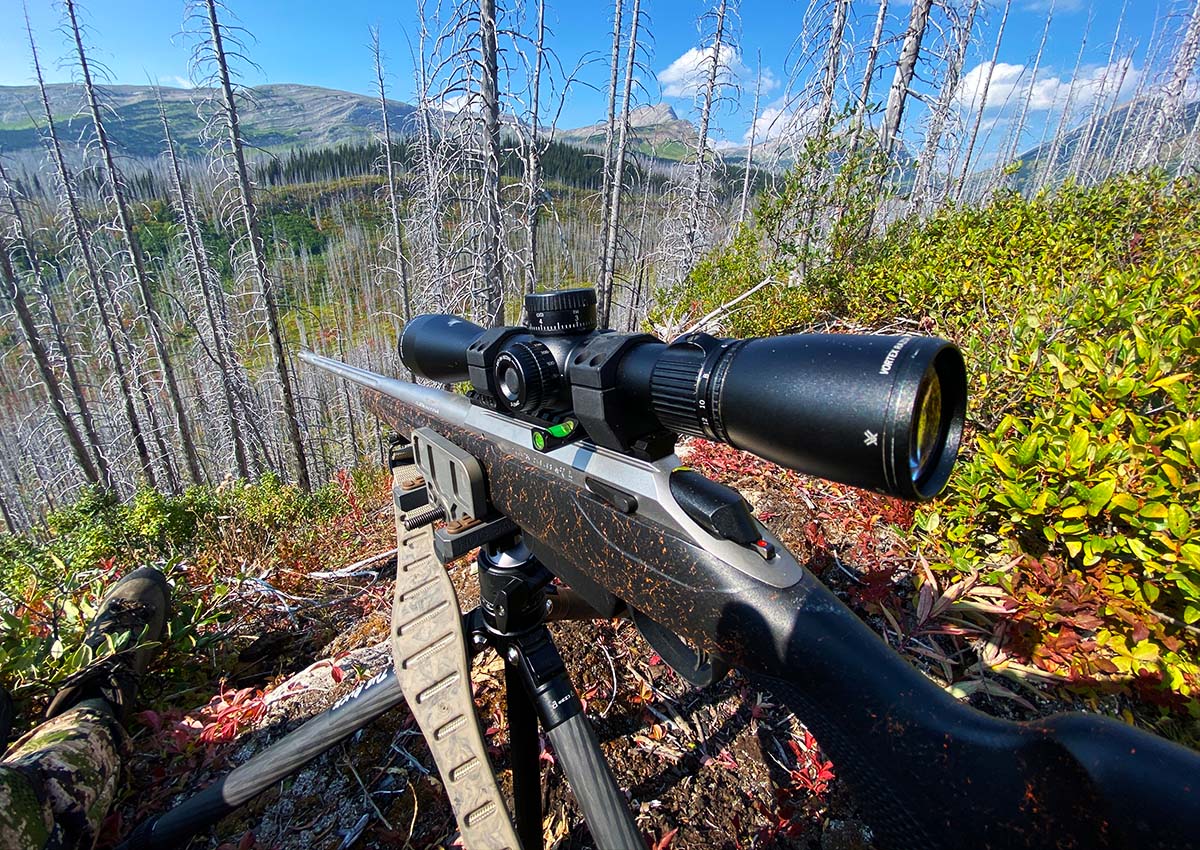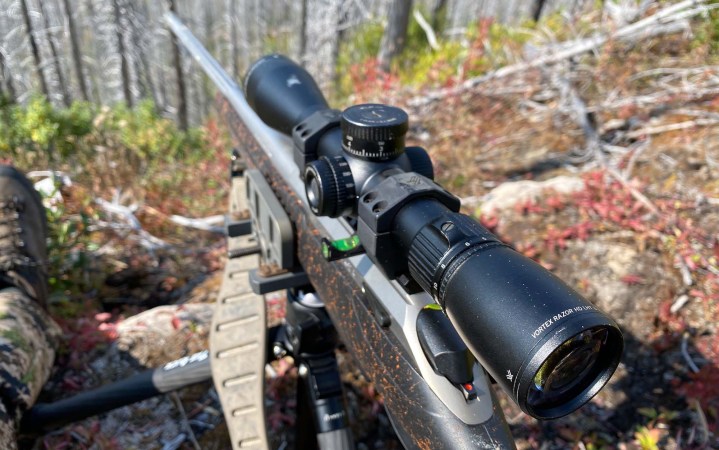We may earn revenue from the products available on this page and participate in affiliate programs. Learn More ›
When I found out I’d be hiking the Canadian Rockies for elk with shot opportunities ranging from spitting distance to 500 yards, I knew I wanted to hunt with a scope that balanced weight and magnification range. A hefty 25x50mm riflescope would be too bulky, but I also wanted more power than a simple 3-9x40mm offers. I ended up settling on the Vortex Razor LHT 3-15x42mm, which I mounted on my .300 Win. Mag. I then carried it for 42 miles and used it to shoot a bull deep in the backcountry. After putting the scope through its paces in the field and on the range, here are my thoughts.
Razor HD LHT 3-15x42mm Specs and Features
- Magnification: 3 to 15 power
- Objective Diameter: 42 mm
- Available in Mil or MOA
- Reticle: HSR-5i
- Second focal plane
- Eye Relief: 4.1 to 3.8 inches
- Capped windage and locking elevation turret
- Tube Size: 30 mm
- Adjustment: .10 mil
- Parallax: 20 yards to infinity
- Max Windage Adjustment: 23 mils
- Max Elevation Adjustment: 23 mils
- Travel Per Rotation: 6 mils
- Length: 13.3 inches
- Weight: 19.1 ounces
- Field of View: 35.3-7.0 ft/100 yds
RevStop Zero System
The zero stop is super easy to install. Start by zeroing your rifle. Then remove the elevation turret cap. Drop in your RevStop and rotate it until it stops. Put the turret back on with it aligned to zero and tighten the screw. Now you can dial your elevation for long shots and easily return your scope to zero. An important note is that the RevStop doesn’t stop at zero. It physically stops .5 mil below the zero, allowing you to dial for closer shots.
Reticle
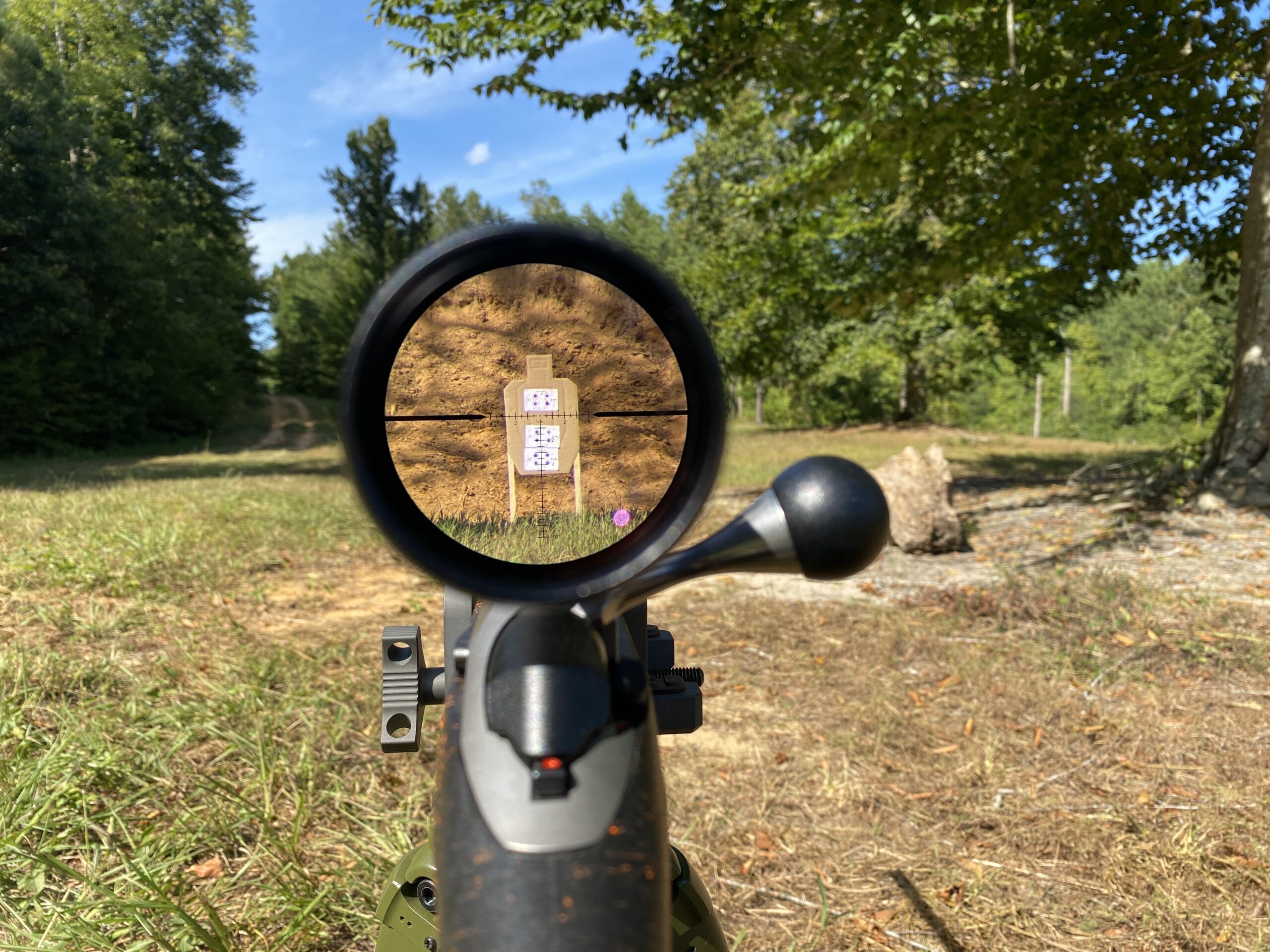
The 3-15×42 LHT is a second-focal plane scope and it comes with the HSR-5i reticle, which has a .1 mil or .35 MOA center dot and subtensions every .5 mil or 2 MOA. If you prefer a first focal plane scope and Christmas tree reticle, the Razor HD LHT 4.5-22×50 has the XLR-2 reticle.
Read Next: How to Use Mil and MOA Reticles for Long Range Accuracy
Turrets
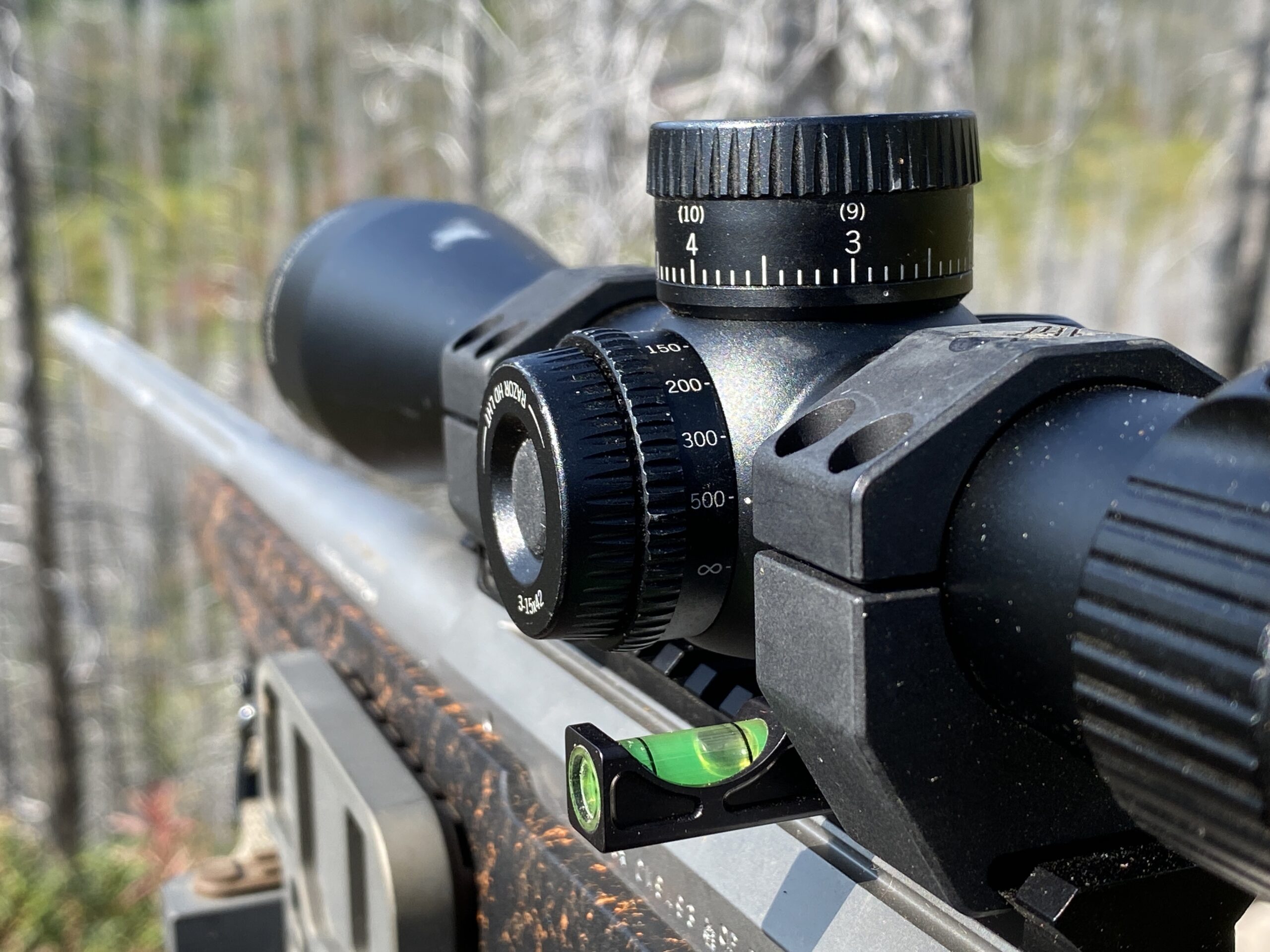
The elevation turret is locking with 6 mils of adjustment per rotation and 23 total mils of adjustment. The 3-15×42 has a capped windage turret and adjustable illumination that turns on with a push of a button. Another nice feature is that LHT scopes with mil turrets have parallax adjustment in meters.
Testing the Razor HD LHT in the Field
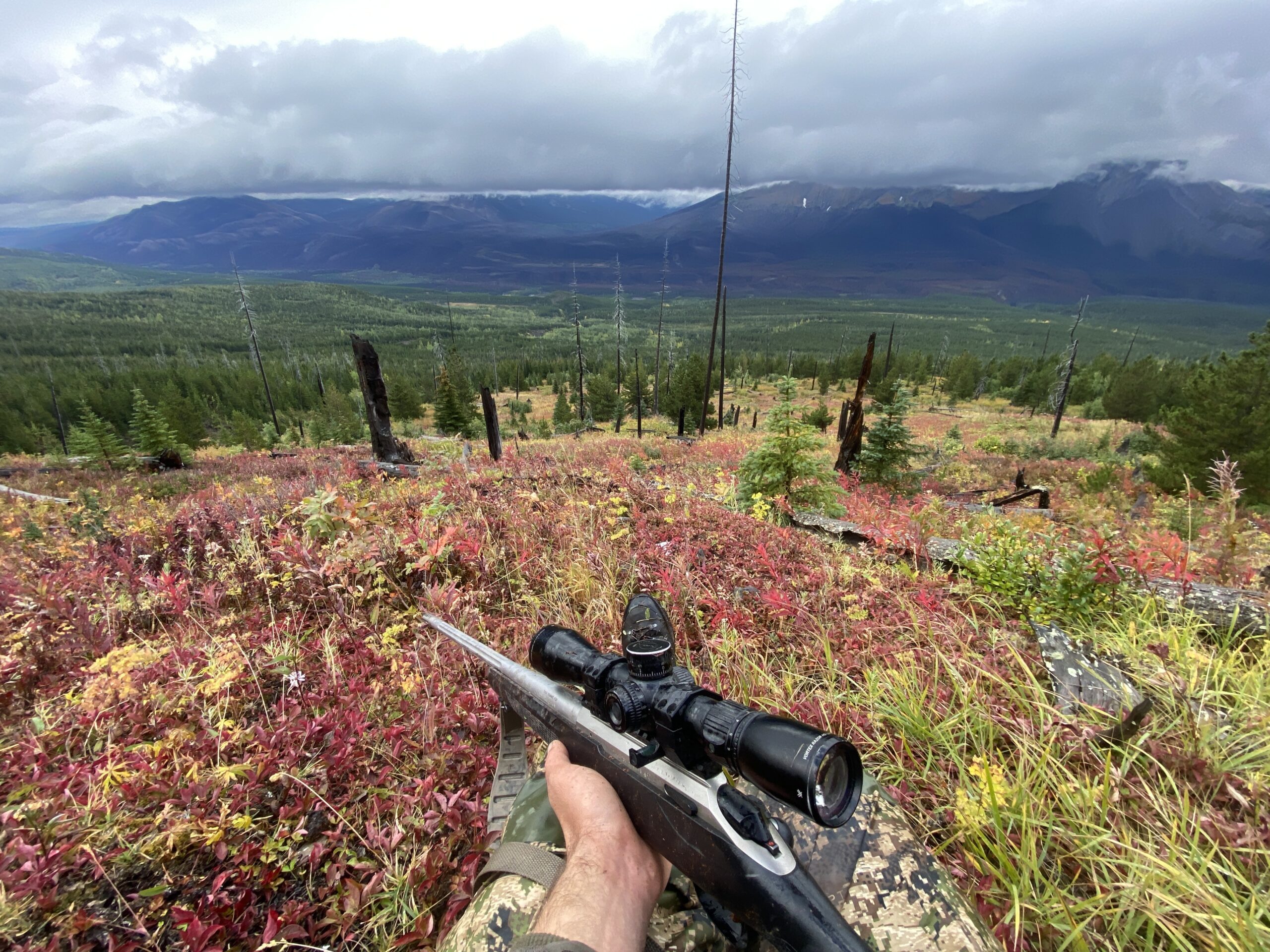
Of the three Razor HD LHT models, the one that best fit my needs was the 3-15×42. It’s the lightest and has a good reticle for close to medium-range shooting. I mounted it on a Tikka T3X Lite, in .300 Win. Mag. with Vortex Precision Rings, and the total rifle weight came to about 8 pounds. I hiked with that rifle in steep and rugged terrain for ten days, and I never felt weighed down. I appreciated the generous 4-inch eye relief on that light magnum rifle.
I used the Razor LHT in dark timber, clear cuts, above timberline, in rain, freezing rain, bright sun, and low light. The light gathering in low-light conditions was good, especially given that we’re talking about a scope with a 30mm tube and 42mm objective. One morning just after sunrise, we called a bull into the timber. I had the scope on the bull several times as it searched for the source of the calling. This was super thick timber, and the unit we were hunting required six or more points on one side. The bull never came into a spot where we could count points, but each time I looked at him through the scope, the image was plenty bright to count points—if there weren’t obstructions.
The Razor line of scopes, binoculars, and spotting scopes are known for good glass. It’s not Zeiss or Swarovski glass, but it’s really good. The same goes for the Razor LHT. I was happy with the edge-to-edge clarity, no issues with fog, and the ability to see plenty of detail at 500 yards with the 15-power scope.
It’s hard to find a scope with daylight-bright illumination, but the Razor LHT’s center dot is bright enough to see at noon on a sunny day. It’s not red dot bright, but it rivals the illumination on the Razor 1-6.
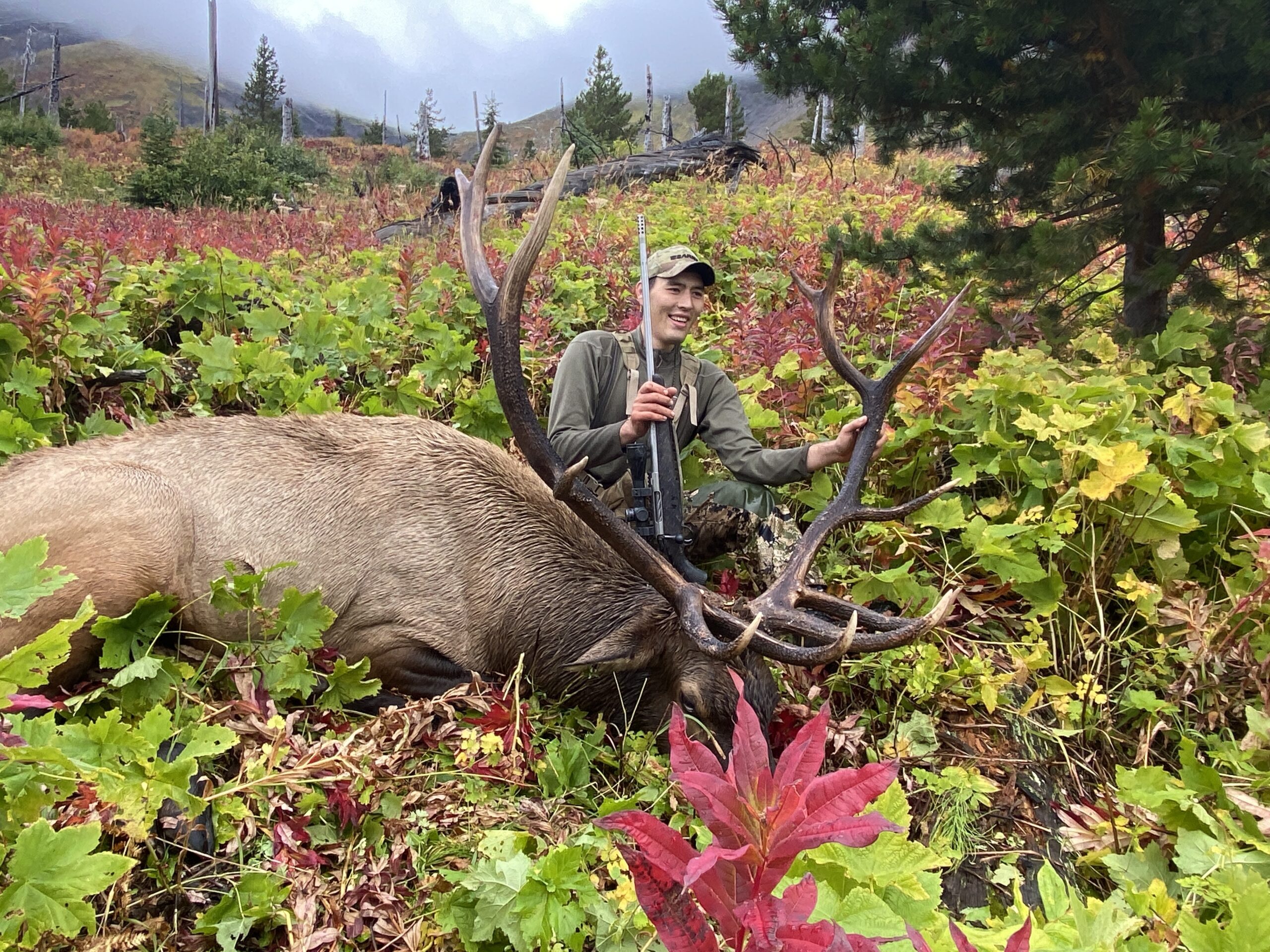
I was fully prepared to shoot 500 yards and, on several occasions, dialed my scope with 1 to 3 mils of elevation in anticipation for a long shot. But I ended up shooting an elk at 20 yards with the scope set to 3.5 power. I followed it up with a quick insurance shot with the bull on the run. The reticle design was great for those fast, off-hand shots. It was intuitive to center the vitals and put the dot where I wanted the bullet to go.
One of the most impressive things about the LHT was that I knocked it hard while hiking (falling hard several times directly onto the optic) but when I got home the rifle was still zeroed.
The power adjustment on the LHT was smooth but stiff. I would recommend outfitting it with a throw lever. I also found the turrets lacked the precise and tactile clicks I’m used to feeling on scopes like the Razor HD Gen III 6-36×56.
What Razor HD LHT Does Best
The Razor HD LHT 3-15×42 is ideal for hunters who need a versatile, light scope they can dial for elevation. You can use it in the timber for whitetails or on a sheep hunt. The higher magnification 4.5-22×50 is right at home on a long-range rifle, precision rimfire, or benchrest air rifle.
What the Razor HD LHT Does Worst
The elevation adjustment isn’t crisp, and the clicks feel mushy. The stiff power ring means you don’t have to worry about accidentally switching power, but it also means you can’t smoothly adjust the power without breaking your shooting position.
Final Thoughts
The Razor HD LHT blends features of precision riflescopes and light hunting scopes into an ideal hybrid. It weighs 1.2 pounds, yet has the magnification and features you might want for longer shots.
